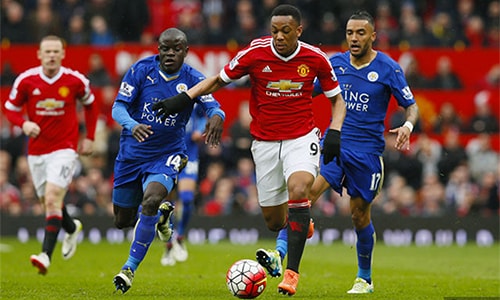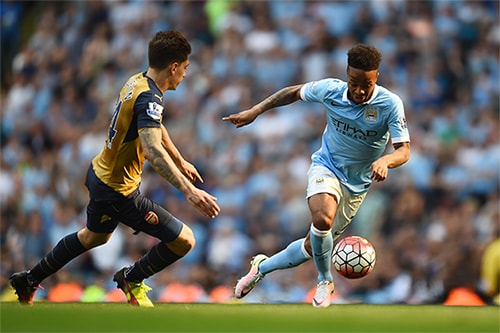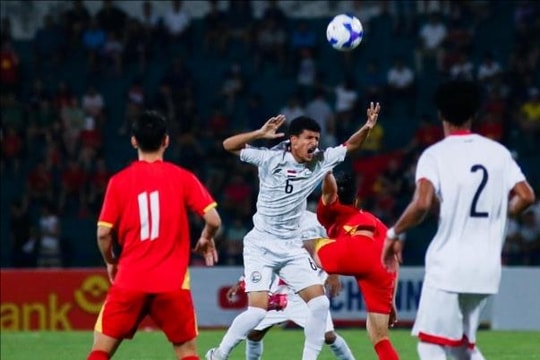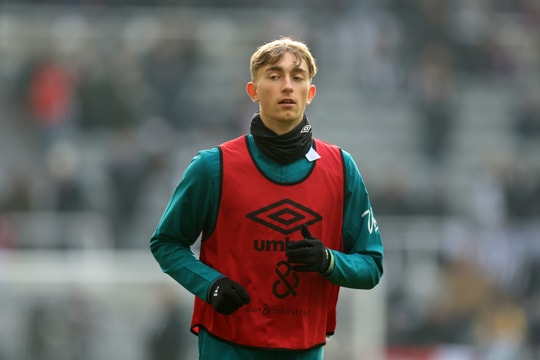Britain voted to leave the EU: How will the Premier League be affected?
The British people have chosen to leave the European Union, and this will gradually lead to impacts that may not be small for the Premier League - the largest and most attractive tournament in Europe.
The vote results show that the British people chose to leave the European Union in a historic referendum on June 23. The UK leaving the EU (also known as Brexit) could have the following consequences for the interests of the Premier League, according to European media.
Work permit.Currently, around 65% of Premier League players are foreign. English clubs are free to sign any player with an EU passport, under the bloc's labor laws that allow freedom of movement. "What will happen after Brexit in terms of labor movement is a big mystery," said Goal.
Meanwhile, the Telegraph analyzed: “If the British choose Brexit, more than 100 players currently playing in the Premier League will no longer meet the current work permit standards for EU players. Therefore, those people may not enjoy the automatic status to join other Premier League clubs.”
 |
Work permits will become a major barrier when the Premier League wants to welcome foreign players. |
Under current Home Office rules, foreign players seeking a work permit in the UK must first meet a certain number of caps for their national team. When the UK was part of the EU, players from other EU countries were not subject to this requirement. Dimitri Payet, N'Golo Kante and Anthony Martial were among the French players who had not yet played for their national team when they joined Premier League clubs in the summer of 2015. When the UK leaves the EU, such players may not be granted a Premier League work permit until they have met the required number of caps.
Some other EU players, such as Arsenal's French striker Olivier Giroud, may still be automatically granted work permits under FA rules, as they are regular internationals for their national teams.
Dr Babatunde Buraimo, a senior lecturer in sports economics at the University of Liverpool, said that Britain leaving the EU could meanClubs will have to pay more money to sign players.
“Clubs will be limited in their ability to sign foreign players. Due to the rules on playing time and FIFA status, clubs will focus more on high-caliber players from EU countries with high FIFA status. If the Premier League were to be restricted like this, it would increase the transfer value of players in the minority, increasing the salary demands. The obvious downside would be that clubs would have to ignore potential players, like Kante, because they do not meet the conditions for applying for a work permit,” Dr. Babatunde Buraimo analyzed specifically.
But many experts predict that work permit regulations will be relaxed or standards lowered, for example for non-EU countries such as Switzerland and Norway, to increase access to single markets.
Dr Gregory Ioannidis, a senior lecturer in law at Sheffield Hallam University, even said he did not foresee “any serious problems or complications” arising in the short term if Britain left the EU, and he also said that there would almost certainly be no restrictions in place for at least the first two to three years after leaving the EU.
 |
The Premier League will not be able to have new Kanes (left) or Martials (right) due to work permit regulations. |
Dr Buraimo is also not sure there will be a "big impact" on the Premier League.“Rational politicians would probably relax the rules and prioritise the single market. The Premier League is one of the UK’s biggest exports and generates huge amounts of money. The net benefit to the UK should not be underestimated,” Buraimo said.
The doctor also said that politicians should consider work permits for footballers as a separate issue, as footballers are a positive contributor to the national economy: “This is not part of the problems caused by the immigration crisis. Footballers are not a controversial issue. They earn a lot of money but they also pay tax, live in the UK and contribute to economic things.”
Other vulnerabilities.The transfer policy for young talent could be affected. FIFA has regulations on the transfer of minors, aged between 16 and 18, from the EU or EEA (European Economic Area). When leaving the EU, English clubs may have to ignore young talents such as Hector Bellerin, who joined Arsenal at the age of 16. Cesc Fabregas, the world's leading midfielder, also joined Arsenal at the age of 16 from Barca.
Likewise, EU membership has opened up opportunities for players from further afield. Many South American players, such as Brazilian-born striker Diego Costa, can apply for citizenship elsewhere, becoming European citizens and moving to the Premier League as easily as they did in the past. Costa already had Spanish citizenship and represented Spain before moving to Chelsea in the summer of 2014.
However, Brian Monteith, who heads the online campaign for Britain to leave the EU through the now-popular website Leave.eu, argues thatBrexit will create more recruitment opportunities for clubs.
“Freedom of movement for EU nationals is coupled with heavy visa restrictions for potential signings from Africa, South America, Asia and the Caribbean. Once we leave the EU, the UK will be free to treat players from all over the world equally, which will widen the talent pool for our clubs, not narrow it,” Brian Monteith told the BBC.
 |
With Brexit, English football will face major barriers when accepting immigrant players like Raheem Sterling (Jamaican origin) or green rice like Bellerin. Photo: AFP. |
Are free transfers still happening as normal?The Bosman ruling, which allows a player to leave a club at the end of his contract to move to another club, will not change because of Britain's departure from the EU. This is now a general FIFA rule and is not subject to European labor law.
Television revenue.Premier League chairman Richard Scudamore recently said Britain should stay in the EU for “business reasons”. Premier League TV rights were sold in the UK last year for £5.14 billion. They also have separate deals across Europe.
Earlier this week, all 20 Premier League clubs expressed support for Britain remaining part of the EU, citing concerns about the difficulty of protecting intellectual property, mainly in the form of broadcasting contracts.
TV revenues are likely to suffer if Britain leaves the EU. “The revenue is clearly linked to the quality of players the Premier League can bring to TV viewers and stadium audiences. That’s why major broadcasters are paying billions of dollars for broadcasting rights,” Dr. Buraimo said.
“If high-quality EU players are not available, or their numbers are reduced in the Premier League, the value of broadcasting rights will of course decrease significantly,” he added.
The UK's exit from the EU could take up to 10 years to be finalised, with countries like France and Germany likely to drag out the negotiations. So the big impact on the Premier League may not be immediate, but it will certainly be significant.
According to VnExpress








